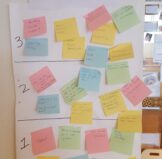Teaching is a deeply fulfilling profession, but it often comes with emotional and physical tolls. Burnout is more than just feeling tired—it can lead to disengagement, reduced effectiveness, and health issues like anxiety and depression. The ripple effects of teacher burnout extend to classrooms, schools, and communities. Prioritizing teacher wellness improves not only personal healthRead More…
5 Simple Stress-Relief Practices Every Teacher Can Use Today
Teaching is one of the most rewarding yet demanding professions. With so many responsibilities, stress can feel inevitable. However, small, intentional actions can make a big difference in how you handle pressure. Here are five stress-relief practices you can start using today: 1. Mindful Breathing When stress feels overwhelming, take a few minutes to focusRead More…
The Venerable Suzanne Aubert: Aotearoa-New Zealand’s First Saint In Making
Among the educators who significantly shaped early childhood education in New Zealand, one prominent figure shines. Her pioneering spirit left an indelible mark on the country and her life and works are an inspiration to those who find out more about this extraordinary woman. A trailblazer in early childhood education, special education and MāoriRead More…
5 Steps To Implement a Pedagogical Documentation Process in Your Early Childhood Setting
Pedagogical documentation is a process of making learning visible to support and inform curriculum planning. It involves collecting data about children’s interests and current knowledge, and reflecting on the data in order to plan, implement, assess and progress learning. Data collection can be done with different tools, such as notes, videos, recordings, portfolios and forms.Read More…
The Benefits of Teacher Wellbeing for Your Health and Happiness
Teacher wellbeing is the state of feeling good and functioning well as an educator and is important not only for teachers themselves, but also for their students, colleagues, schools and communities. It involves having positive emotions, meaningful relationships, a sense of purpose and a balance between work and leisure. Teacher wellbeing also includes taking careRead More…










